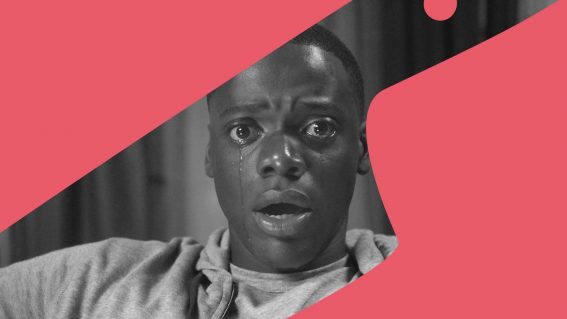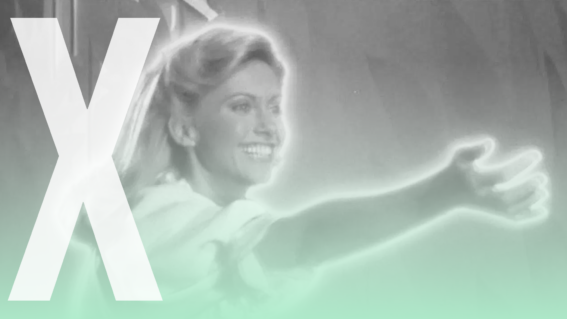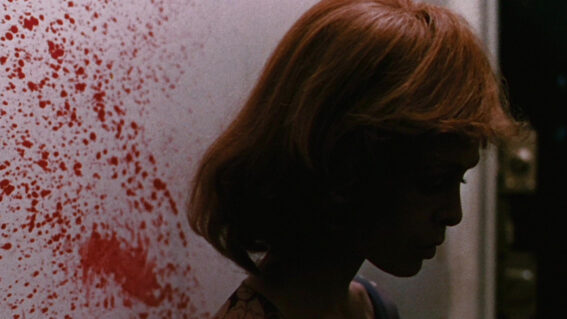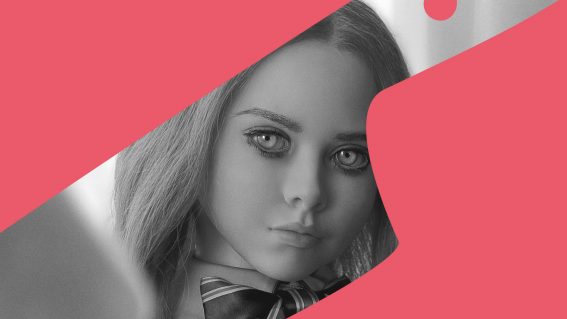Sci-fi mystery Sunny is curious about loneliness and those who actively embrace it
Another high-concept sci-fi arrives in Apple TV+’s wilful search to find the next Severance.
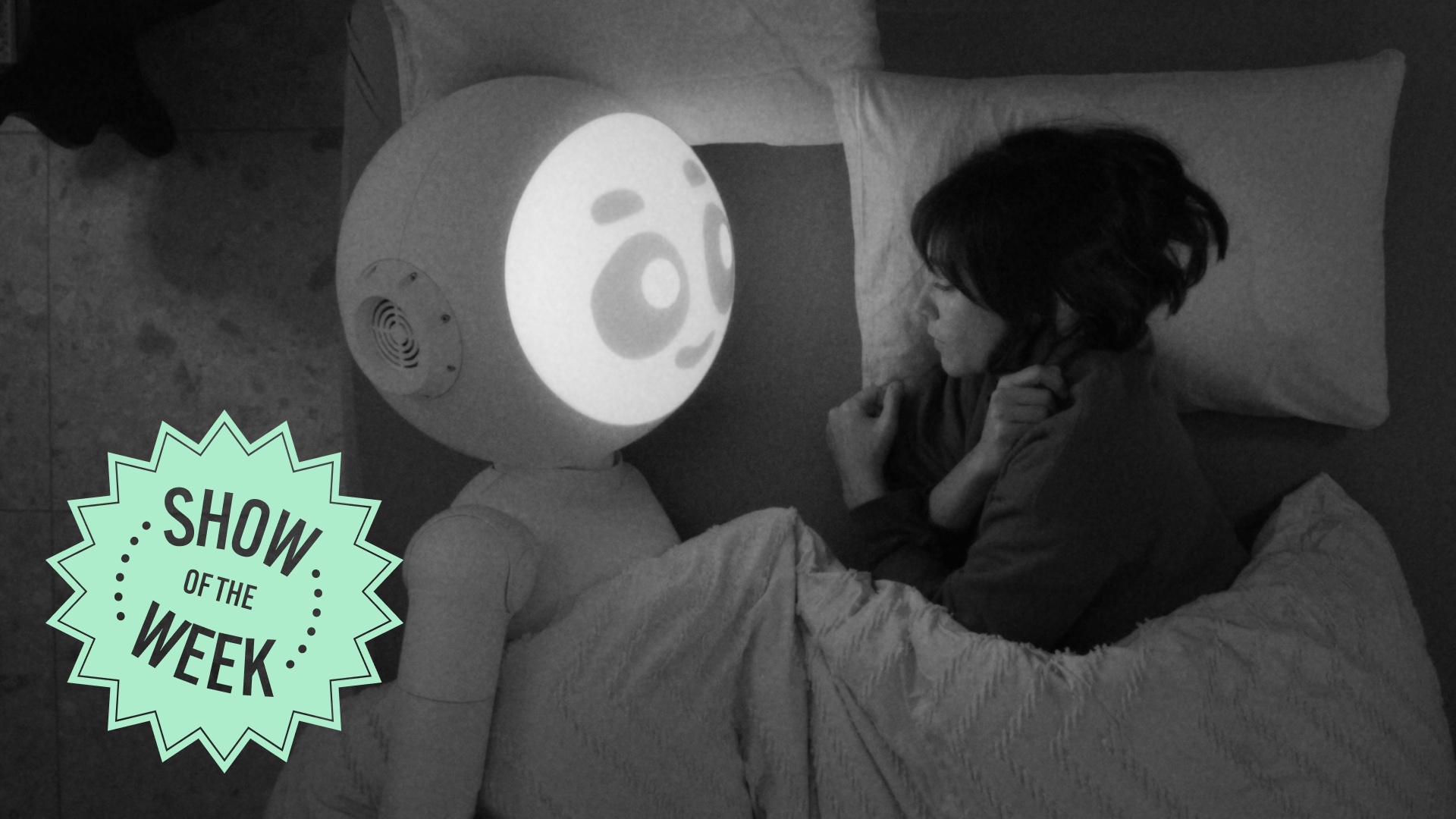
Clarisse Loughrey’s Show of the Week column, published every Friday, spotlights a new show to watch or skip. This week: Conspiratorial sci-fi Sunny, set in near-future Japan.
In Apple TV+’s wilful search to find the next Severance (or, at least, stall until Severance returns next year), another high-concept sci-fi arrives in the form of Sunny. Its premise would stop any executive in their tracks: recently widowed Suzie Sakamoto (Rashida Jones), her husband and son lost in a plane crash, is delivered a home robot named Sunny, made by her husband Masa (Hidetoshi Nishijima). Only, her husband told her he made refrigerators. And, when she tries to call him on his phone, it doesn’t go straight to voicemail like all the other crash victims. Instead, it just rings and rings and rings and rings.
Clearly, the basic television viewer will discern, there’s a conspiracy afoot. This is Japan, in the near future, and there’s only so much episode that can pass before the yakuza start to meddle. Hime (You) is the daughter of a local leader. His time will be over soon. She’s keen to ascend, and believes there’s a hacker’s guide, The Dark Manual (also the name of Colin O’Sullivan’s source novel), that can force these homebots to do unseemly things otherwise forbidden by their programming. Masa, it transpires, may somehow be involved.
I’ll be honest, we’re so regularly inundated now with shows about mysteries and conspiracies that they’ve started to collapse into a kind of white noise in my head. Clearly, there’s an appetite for it, but there’s nothing in particular about Sunny’s revelations that feels shocking. Sometimes, it meanders unnecessarily, as tends to be the case when a story doesn’t naturally stretch to the ten-episode demand (each is half an hour in length).
So, instead, I tend to ignore the peculiarities and merely bathe in emotion, mood, and character. It’s a pleasant vision of the future, conveniently tailored to look like the minimalist utopia Apple’s marketing department seems determined to conjure. Even the homebots come in that soft, soothing shades of white. And Sunny, created by Katie Robbins, thankfully has a real curiosity about the state of loneliness and those who actively embrace it. Suzie is an American who moved to Japan. She claims it’s because of Sailor Moon, and all that pop culture jazz.
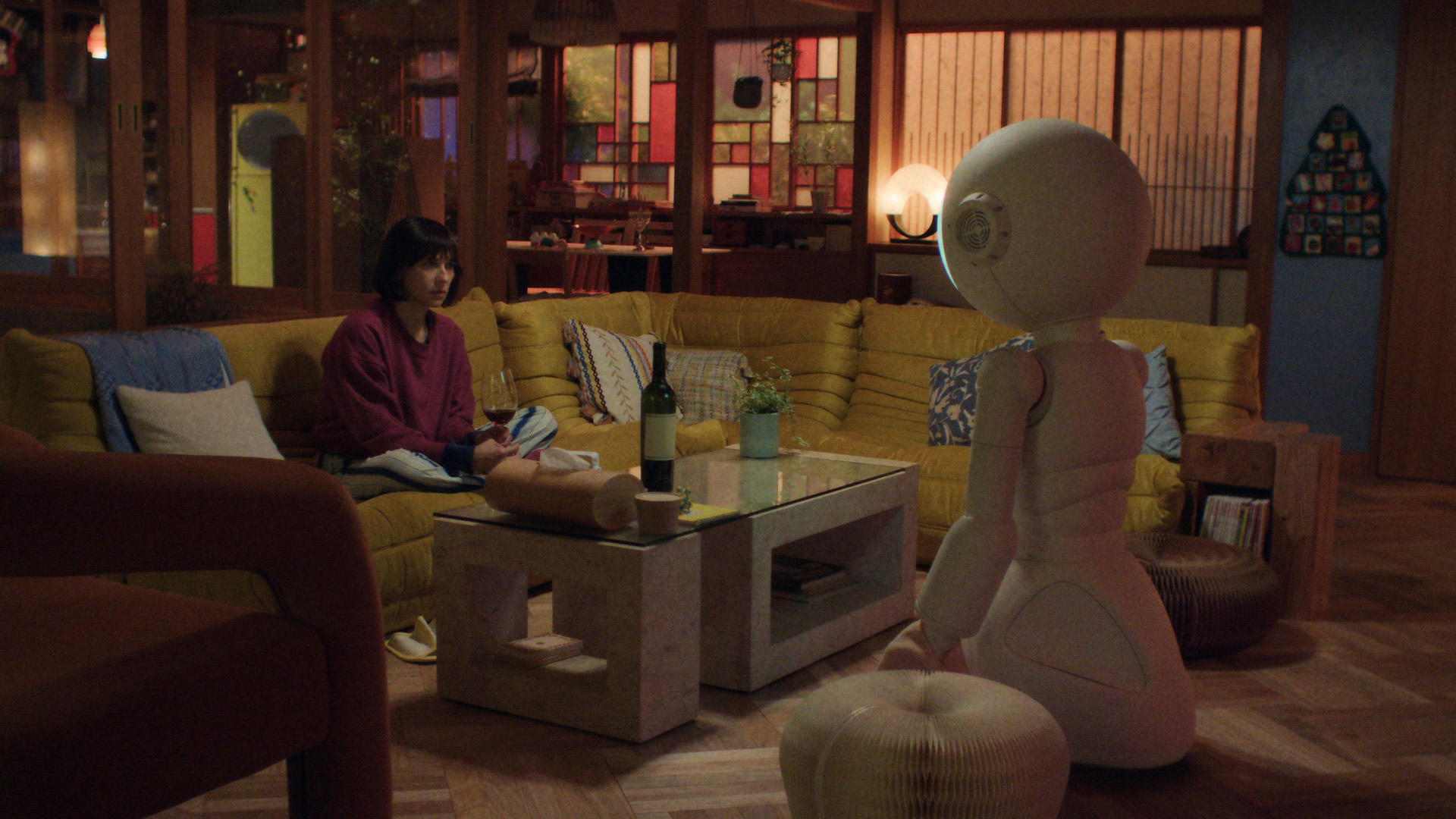
She meets Masa at one of those solo diner ramen places, where you’re served by a machine and don’t need to speak to a damned soul if you don’t want to (I see the appeal). She won’t learn Japanese, using her dyslexia as an excuse to not even try (there are in-ear translation devices in this world). She is actively disengaged from local traditions, to the point she won’t even fully commit to her husband’s funeral. And she doesn’t have any friends.
She does meet a young bartender, Mixxy (musician and YouTuber Annie the Clumsy), who seems intrigued by Suzie’s misery; she’s loyal, empathetic, but not afraid to confront her new friend’s assumptions about the country she’s decided to make home. Jones is fantastic in the role. She makes Suzie defensive to the point of aggressive, like a cornered dog gnashing at the air around it.
There’s enough of a character study there to make Sunny feel worthwhile, especially when we learn about her odd fascination with the concept of hikikomori, a formalised Japanese way of talking about what is really a worldwide phenomenon—people, especially young men, who have completely withdrawn from society. To most, that sounds like a tragedy, a thing to be saved from. But Suzie seems almost to crave it. What if there was a way to abandon the world we feel so disconnected from? Sunny dares the thought.















